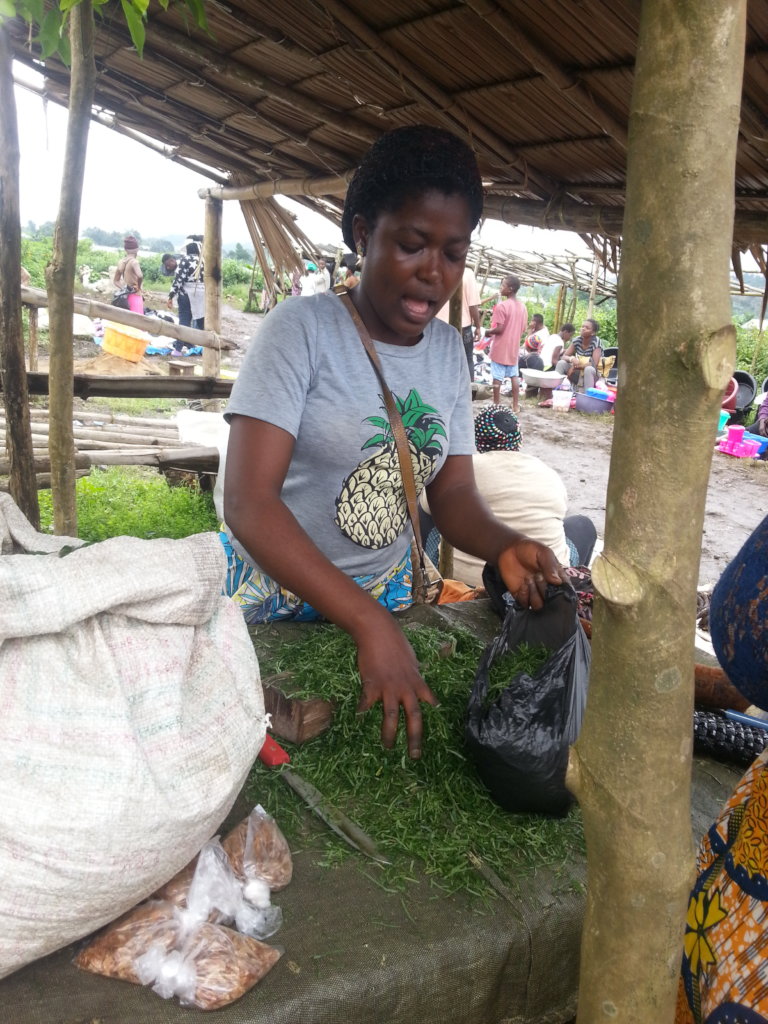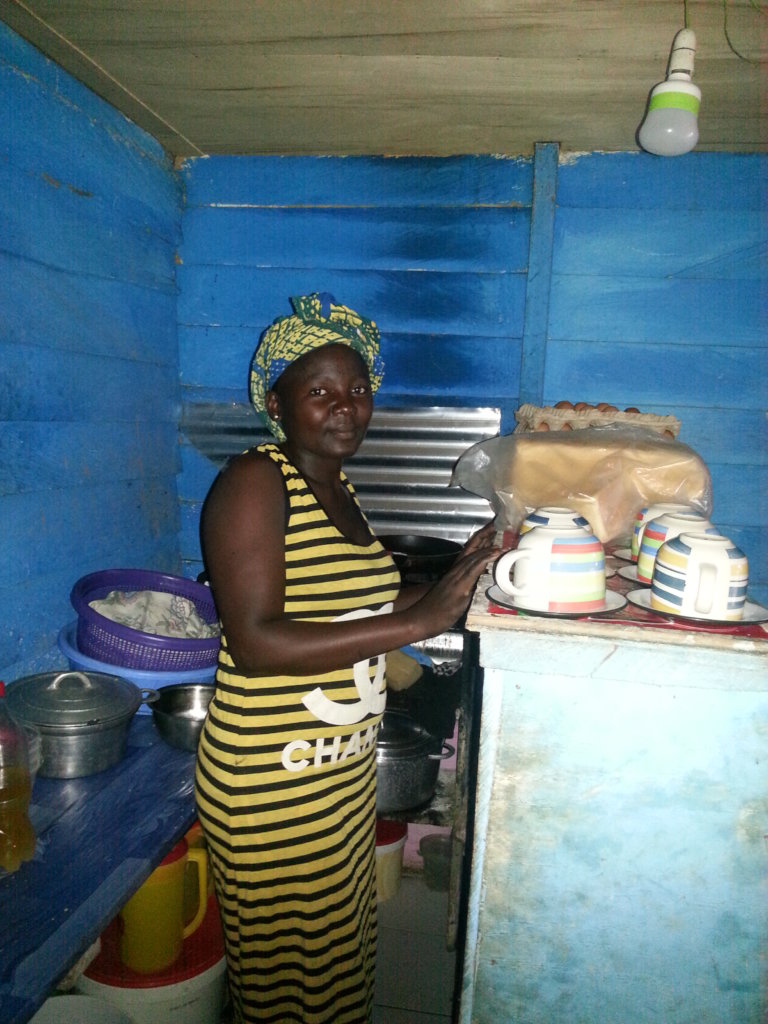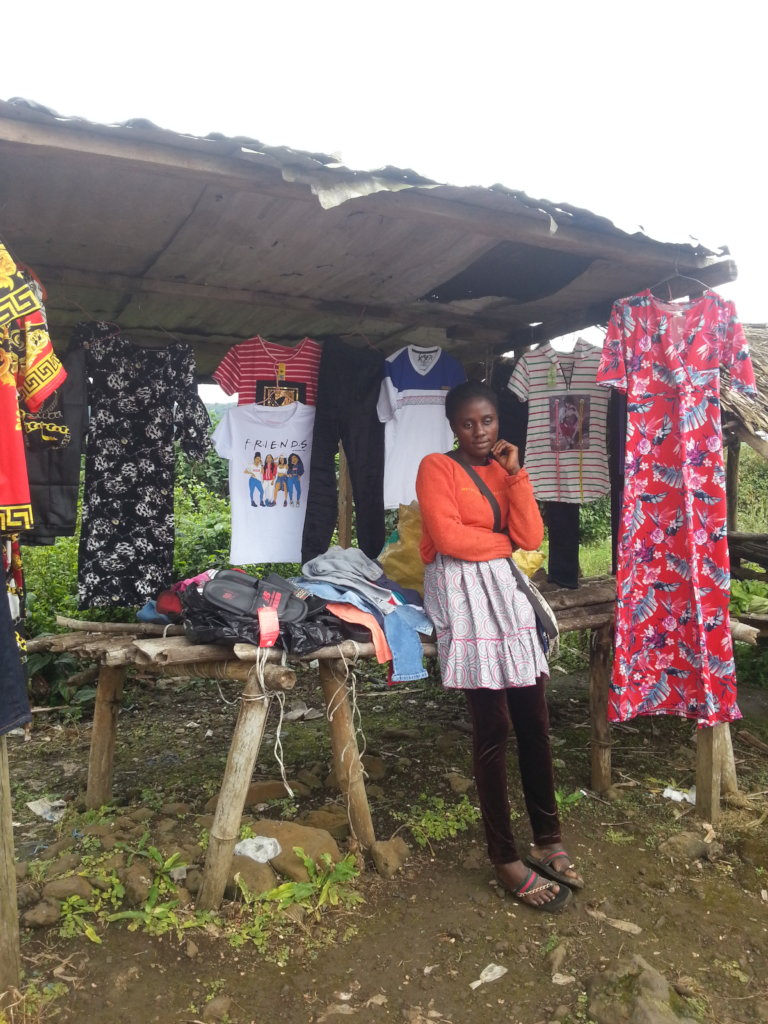By Sandrine Teghen | project Coordinator
Doing business in the middle of a civil war is really challenging. This is the case in the North West and South West Regions of Cameroon in particular. The economy seems dangling, with the numerous “Ghost towns”, curfews and lockdowns. However, monthly site visitats and strict follow-up of book keeping show that over 70% of program participants this month are showing improvement. They are gradually standing on their feet whereever they find themselves. Some have been displaced from Tole to urban centers like Buea and Limbe. They moved out again due to the weak economy of the village and the increasing insecurity.
“I am so grateful to be a beneficiary of this program” says Esua, one of the beneficiaries. “Despite the challenges I faced in Tole such as constant harassment from the Military and non-state armed groups, slow business turnover and lack of education for my children, and the ones I am facing here in Buea as a “refugee” [she is actually an internally displaced person, but they refer to themselves as refugees], I still have something to hold on to. My business for which you gave me the capital. Life is not easy here in Buea. I have left my own house which I had furnished and equipped well thanks to this business. I was able to join hands with my husband and we built our own small house in Tole. Due to the crisis, we were forced to move to Buea and rent again. Here in Buea, while my husband struggles every day as a taxi man, I move from market to market to do my business. Though it’s so stressful and tiring, I don’t regret it. My children go to school here, unlike in Tole where they had stayed out of school for 2 years because of this crisis.
“This crisis is like a bad joke” said Joy, another beneficiary based in Tole. She has been displaced and came back on several occasions in the past year and a half. Despite the slowness of economic activities, she stood her grounds in Tole. “People must eat” she said. For more than a year she has been doing buying and selling of food stuffs with your support. (You can check her out in the project video, which was recorded about a year ago.) She is today one of the major suppliers of Eru in Tole. Though there is no school going on in Tole, Joy is able to send her children to other places like Douala to continue their education. No matter how many times she runs to other areas for safety, she is comfortable coming back to Tole, where she has mastered the market and has a great network of clients and a sure source of income.
Like her, hundreds of thousands of men women in this conflict area have managed to navigate life or death environments with multiple armed actors. They carry out normal business activities that help keep the living standards in their communities.
Thank you for supporting them. This month we will be expanding the program by supporting 40 new displaced women living in Buea and Limbe, and 20 from Ekona, another conflict-affected area where Reach Out carries out humanitarian activities (Food Distribution, Water Hygiene and Sanitation, and provision of services for victims of Gender-Based Violence), the 20 girls have been identified from these different programs. We will keep you posted.
Project reports on GlobalGiving are posted directly to globalgiving.org by Project Leaders as they are completed, generally every 3-4 months. To protect the integrity of these documents, GlobalGiving does not alter them; therefore you may find some language or formatting issues.
If you donate to this project or have donated to this project, you can receive an email when this project posts a report. You can also subscribe for reports without donating.
Support this important cause by creating a personalized fundraising page.
Start a Fundraiser

